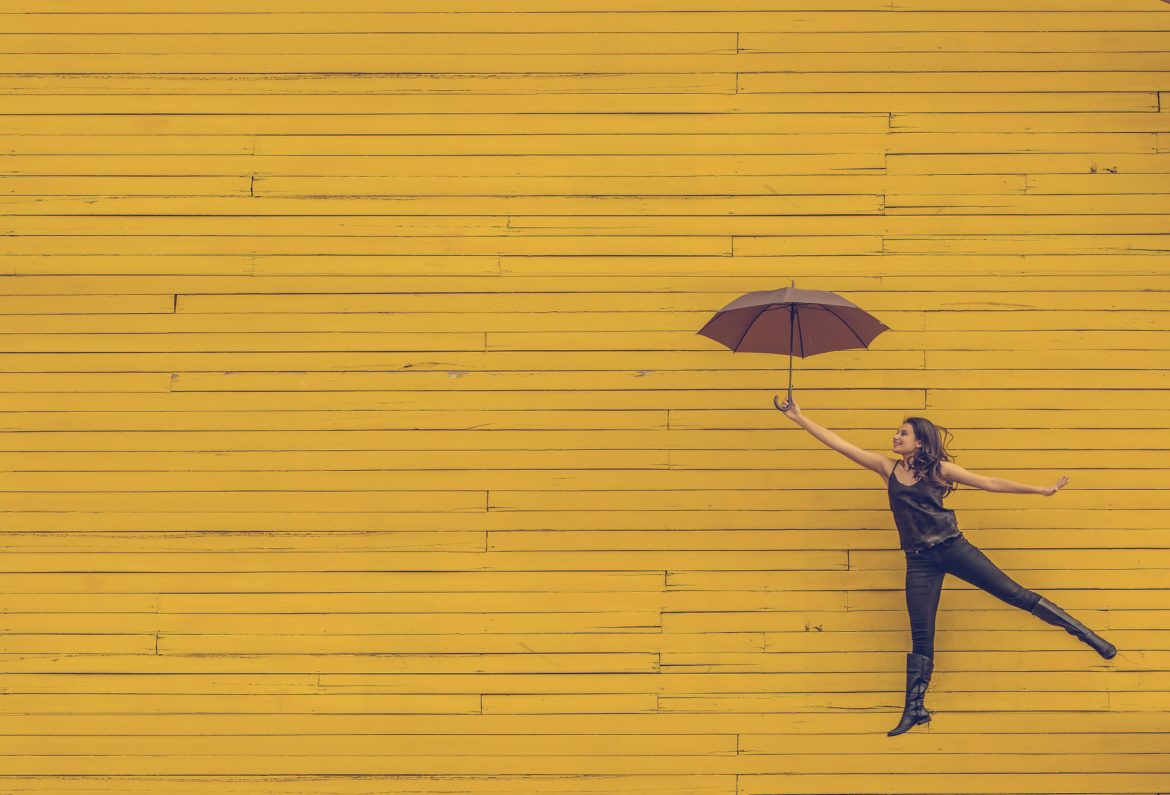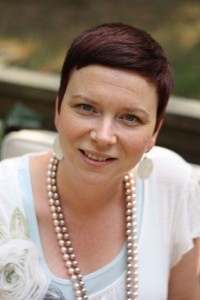A few weeks ago, I was reading about body image coaching online and I came across the website of Christie Inge, a coach whose approach really resonated with me. From her website, it sounded to me like Christie’s approach was part Pema Chodron and part Samantha Jones. A pretty awesome combo if you ask me. On her “About” page, Christie says, “I believe that your body is fucking brilliant and that it is the only guru you will ever need.” Cool, right? So I reached out to Christie to see if she’d be interested in a Q&A and without further ado — my interview with a body image coach.
On your website, you discuss your struggles with binge eating. How did that impact your body image and how did you overcome it?
I haven’t binged in 3.5 years. I wasn’t even aware that what I was doing was binge eating and emotional eating until about six/seven years ago. I had been binge eating since I was eight years old. My body image didn’t become a problem until I was in high school. I remember exercising for hours in my bedroom and thinking about how fat and ugly I was. When, in reality, I was technically underweight for my height.
In my teens and twenties, I was on some pretty intense drugs (cocaine, ecstasy) and alcohol and when I stopped all that, I just went right back to food.
So, for me, it was never really about just food or my body image. It was about using food, drugs, sex, and alcohol to cope with my life. And then beating myself up for it. My sense of worth was in the toilet and those behaviors are what manifested as a result of that.
In the end, I had to learn how to love and accept myself, not just my body. This included learning how to feel my feelings, learning how to manage my mind like I would an employee, and honoring what I call my true cravings. From there, my desire to eat outside of my body’s true needs changed automatically. It is literally about changing from the inside out.
What issues or struggles do you commonly see among your clients?
I work with women who struggle with poor body image, yo-yo dieting and emotional eating. But, what it is really about for them is a lack of practical tools for listening to their body about what, when, and how much to eat, tools for working with their mind, their emotions, and their needs and – even deeper than that – not loving and accepting themselves. They also tend to struggle with setting boundaries and, in many cases, not even knowing what boundaries are. And they tend to be people pleasers, as well.
My clients come to me when they are at their “rock bottom,” not believing in themselves or their ability to create what they want in their lives.
My favorite quote is:
“And then the day came that the risk to remain tight in a bud was more painful than the risk it took to blossom,” by Anais Nin.
So, in other words, they are really ready to become the deliberate creators of their relationship with food, with their body and their lives. They know that what they are doing isn’t working but aren’t really sure HOW to make it happen.
I guide them to their how.
What kinds of strategies do you use to help clients address their issues?
Well, I am a mix of woo-woo and no-nonsense practical tools and I rely on my intuition to guide me. I have a knack for being able to translate how they feel into words so that they can better understand themselves and their true cravings. I’m a bit of a cravings decoder and heart navigator.
Once we discover what the true cravings are (love, acceptance, safety, autonomy, etc.), I teach them how to use their minds and their emotions as the GPS to satisfying those cravings.
How do you adjust your strategies for particular clients?
I meet my clients where they are and, from there, just trust my instincts.
What do you think we should be doing both on the individual level and the social level to help women accept themselves and improve their body image?
Well, first, I don’t believe that the word “should” is helpful. Believing we should/have to/must/can’t really interferes with our autonomy. One of our deepest cravings is to live free, autonomous lives — following our bliss, if you will. 

So I don’t think anyone should do anything. We each have our own inner wisdom and when it’s followed, the world becomes a better place.
For me, my personal mission is that every woman on the planet would know and honor her inherent self-worth. From that place, only beautiful things would happen in regards to body image.
I do that by practicing what I preach.
When I love and accept myself, it shows and the women around me see it. And when they see that, it creates a desire within them to create the same for themselves. They begin to love and accept themselves and it just flows. It literally radiates. It happens automatically.
So, if a woman wants to know what she can do to impact the self-image of others, starting with herself would by my recommendation.
What do you think of media efforts like the Dove real beauty campaign?
Honestly, I don’t think about them. I don’t really read many magazines or watch much TV. I don’t watch the news. I intentionally choose where I direct my mental and emotional energy and the media isn’t normally one of those places. For me, it just doesn’t feel good.
With that said, I have seen the most recent video that is buzzing around Facebook and have mixed feelings about it. One of the reasons I avoid the media — on purpose — is the subconscious messaging behind it. What we take in through our ears and eyes impacts the way we think — whether we know it does or not.
I do think that campaign is a step in a better direction but I have not shared the video with my peeps and don’t plan to. When they start doing videos with women of all shapes and sizes and showing them as worthy, whole and amazing no matter what they do, achieve or look like, I’ll consider it.
Until then, I’m focusing on my mission in the world.



